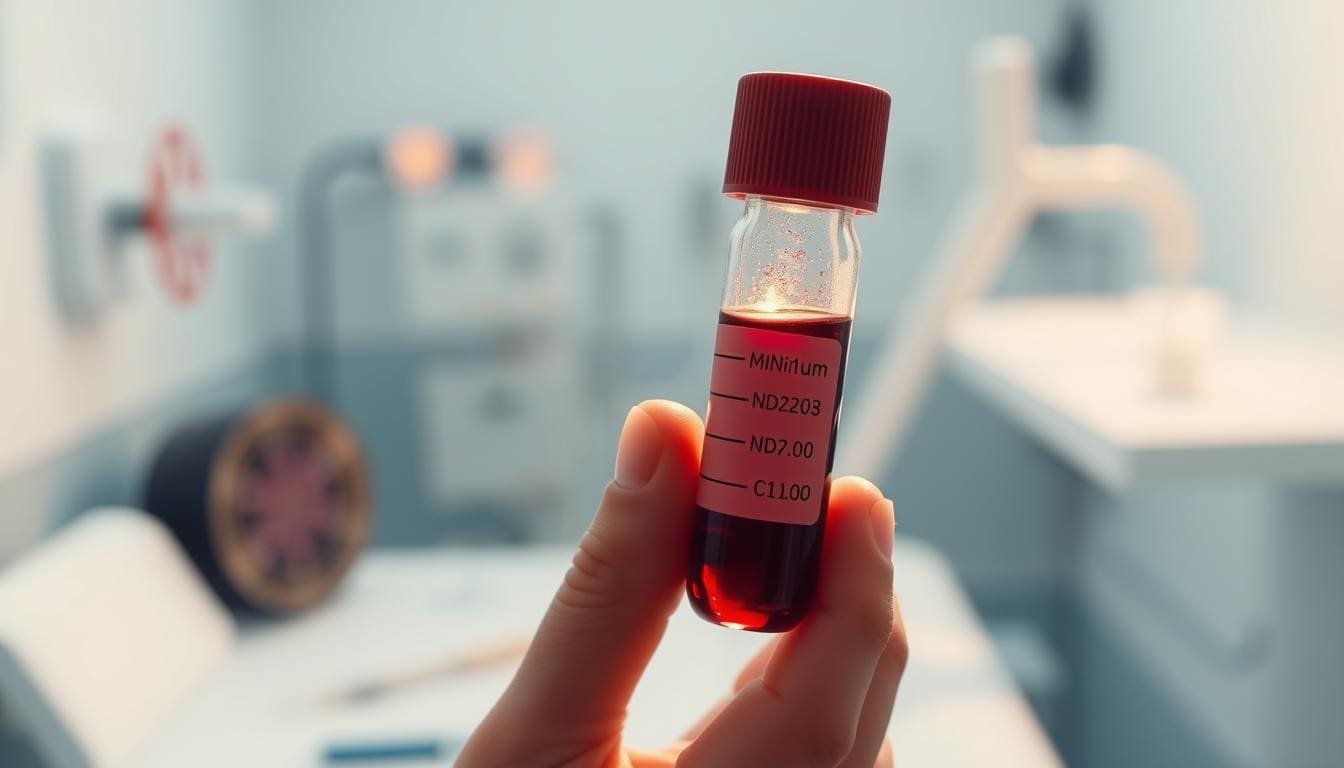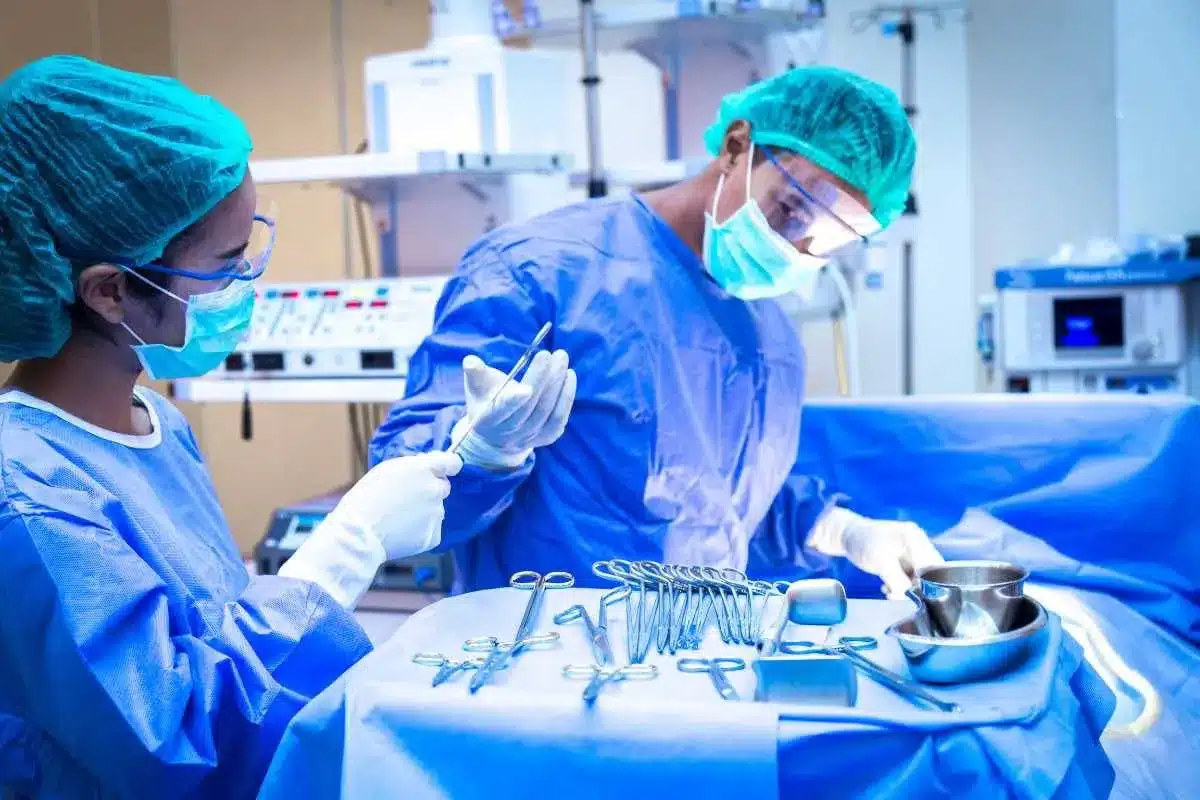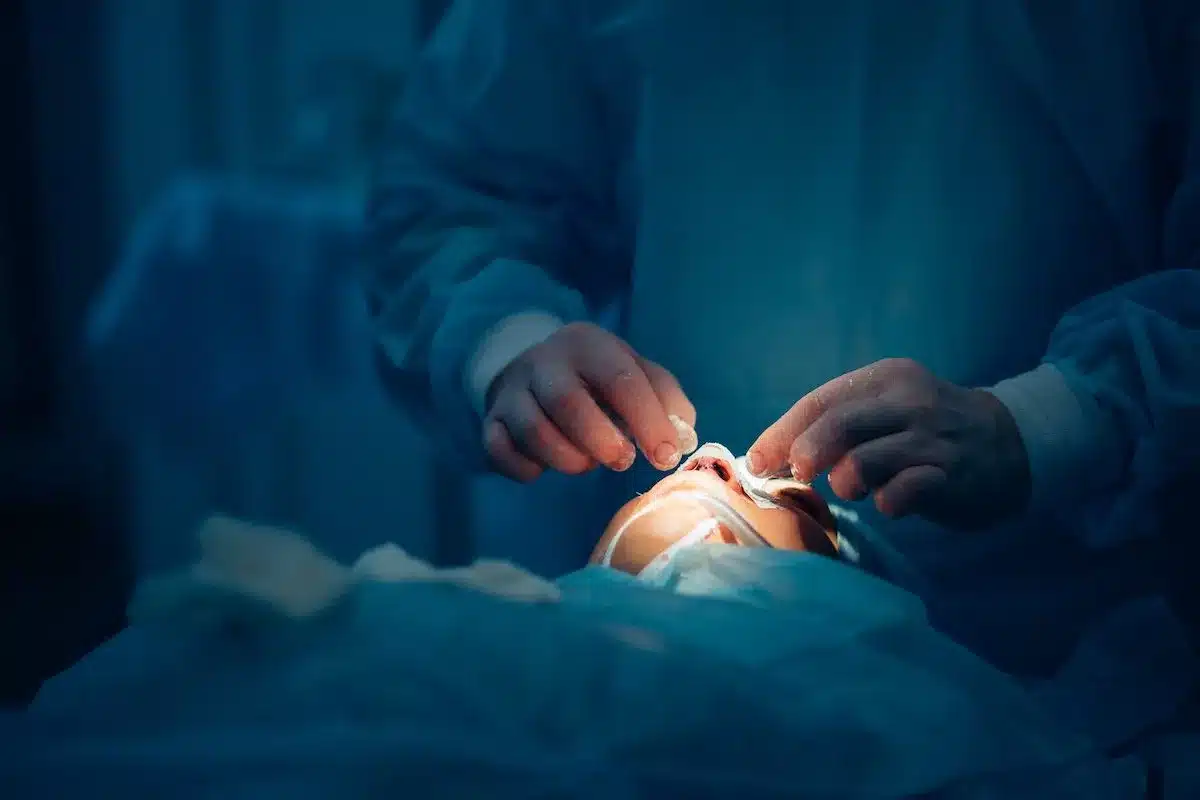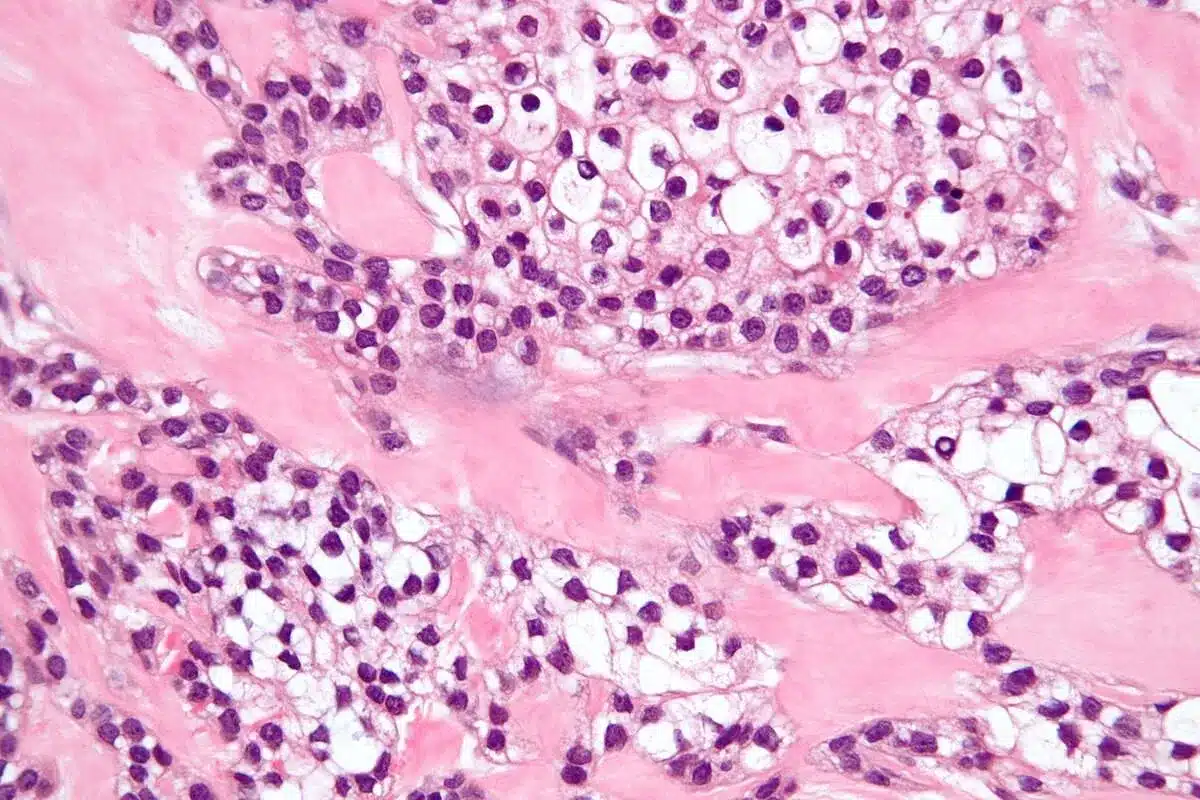How does your body warn you of cancer? Did you know that cancer is one of the leading causes of death worldwide? Yet, many cases can be treated if caught early. Our bodies often send subtle signals that can hint at health issues, including cancer symptoms. It’s key to recognize these cancer warning signs for timely medical help.
We often ignore these signals, thinking they’re minor or not serious. But understanding these warning signs can save lives. In this article, we’ll look at how your body warns you of cancer and how to spot these signs early.
Key Takeaways
- Understanding your body’s warning signs can lead to early detection of cancer.
- Common cancer symptoms include unexplained changes in your body.
- Timely medical intervention can significantly improve treatment outcomes.
- Being aware of your body’s signals is key for health.
- Don’t ignore subtle changes; they could be cancer warning signs.
Understanding Cancer and Its Early Warning Signs
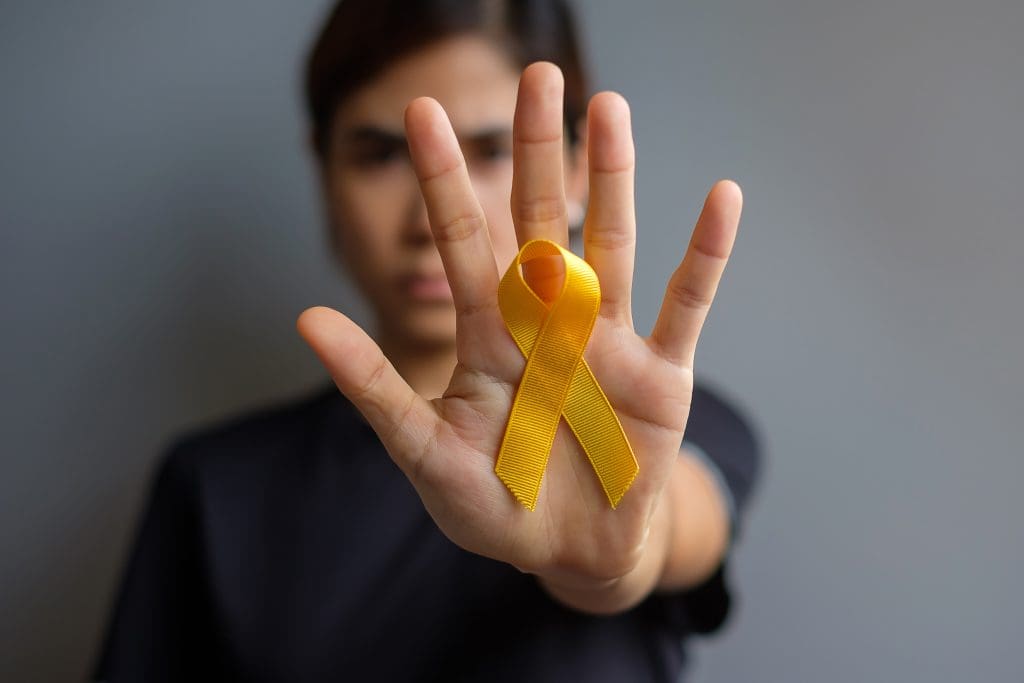
Cancer happens when cells grow out of control. Knowing the early signs can save lives. We’ll look into what cancer is and why catching it early matters.
What is cancer and how does it develop?
Cancer is a disease where cells grow without stopping. These cells can spread to other parts of the body. This is called metastasis. Cancer starts with genetic changes that let cells divide without control.
Many things can lead to cancer, such as:
- Genetic predisposition
- Environmental exposures (e.g., tobacco, radiation)
- Infections (e.g., HPV, Hepatitis B)
- Lifestyle factors (e.g., diet, physical activity)
Why early detection matters
Finding cancer early can greatly improve treatment chances. Early-stage cancer is easier to treat and less likely to spread. This can lead to better outcomes and longer lives.
Key benefits of early detection include:
- More effective treatment options
- Reduced risk of cancer recurrence
- Improved quality of life
By knowing about cancer and its early signs, we can act early. This can save lives.
Unexplained Weight Loss: A Silent Warning
Unexplained weight loss is more than just a surprising number on the scale. It can be a silent warning sign that something is amiss in the body. When you lose weight without trying, it may indicate that your body is not functioning properly.
We often associate weight loss with a deliberate change in diet or exercise. But unexplained weight loss occurs without any conscious effort to lose weight. This type of weight loss can be a symptom of various health issues, including cancer.
When weight loss becomes concerning
Losing a significant amount of weight over a short period can be alarming. Generally, if you lose more than 5% of your body weight over 6-12 months without trying, it’s considered significant and warrants medical attention.
For instance, if you weigh 150 pounds, losing more than 7.5 pounds over 6-12 months without any apparent reason is worth discussing with your healthcare provider.
Types of cancer associated with unexplained weight loss
Certain types of cancer are more commonly associated with unexplained weight loss. These include:
- Pancreatic cancer: Often leads to weight loss due to a decrease in appetite or difficulty digesting food.
- Lung cancer: Can cause weight loss, especially in advanced stages.
- Stomach cancer: May lead to weight loss due to reduced appetite or difficulty eating.
- Esophageal cancer: Can cause weight loss due to difficulty swallowing.
According to cancer research,
“Unexplained weight loss is a common symptom in various types of cancer, affecting the body’s ability to function normally.”
| Type of Cancer | Common Symptoms |
| Pancreatic Cancer | Weight loss, abdominal pain, jaundice |
| Lung Cancer | Coughing, chest pain, weight loss |
| Stomach Cancer | Weight loss, abdominal pain, nausea |
Monitoring your weight and reporting any significant changes to your doctor is essential. Early detection and diagnosis can significantly impact the treatment and management of cancer.
Persistent Fatigue and Weakness
Feeling tired is normal, but persistent fatigue can signal a serious health issue, like cancer. We often think tiredness comes from not sleeping enough or working too hard. But if it lasts and affects your daily life, it’s time to find out why.
Differentiating Between Normal Tiredness and Cancer-Related Fatigue
Normal tiredness goes away with rest, but cancer-related fatigue doesn’t. It’s not just feeling tired; it’s a deep lack of energy that makes daily tasks hard. This kind of fatigue comes from the cancer itself, treatments like chemotherapy, or a mix of both.
Key differences between normal tiredness and cancer-related fatigue include:
- Persistent and unrelieved by rest
- Interferes with daily activities
- Often accompanied by other symptoms like weight loss or pain
How Cancer Causes Energy Depletion
Cancer can drain your energy in many ways. The body’s fight against cancer can cause inflammation, leading to fatigue. Also, tumors can release substances that mess with how your body makes energy.
The table below summarizes some ways cancer can lead to fatigue:
| Cause | Description |
| Inflammation | The body’s response to cancer can lead to chronic inflammation, causing fatigue. |
| Tumor Effects | Tumors can release substances that affect the body’s metabolism and energy production. |
| Treatment Side Effects | Cancer treatments like chemotherapy and radiation therapy can cause fatigue. |
“Fatigue is one of the most common symptoms reported by cancer patients, significantly impacting their quality of life.”
Source: Cancer Research Institute
It’s important to know why you’re feeling persistent fatigue and if it might be cancer. If you’re always tired, talk to your doctor. They can help find out why and what to do about it.
Lumps and Masses: When to Be Concerned
Lumps and masses can show up in different parts of the body. It’s important to know when to worry about them for early health checks. Finding a new lump or mass can be scary, but not all are serious.
Common Locations for Cancerous Lumps
Cancerous lumps can pop up in various spots. They often appear in the breast, testicles, and lymph nodes. It’s key to watch these areas for any odd changes.
- Breast: Lumps in the breast might mean breast cancer. Doing self-exams and getting mammograms is key for catching it early.
- Testicles: Testicular cancer shows up as a painless lump or swelling. Men should check their testicles regularly for any oddities.
- Lymph Nodes: Swollen lymph nodes could mean lymphoma or other cancers. These nodes are in the neck, armpits, and groin.
Characteristics of Suspicious Lumps
Not every lump is cancer, but some signs can hint at a higher risk. Keep an eye out for lumps that are:
- Painless: Many cancerous lumps don’t hurt, at least not at first.
- Hard or Firm: Cancerous lumps tend to be hard or firm when touched.
- Irregularly Shaped: Lumps with odd shapes or borders might be suspicious.
- Fixed: Lumps that don’t budge when you press on them are worrisome.
| Characteristic | Description | Concern Level |
| Painless | Lump does not cause pain | High |
| Hard or Firm | Lump is hard or firm to the touch | High |
| Irregularly Shaped | Lump has irregular borders or shape | High |
| Fixed | Lump is fixed in place and doesn’t move | High |
If you spot a lump or mass with these traits, see a doctor right away. Early detection and diagnosis are vital for effective treatment.
Skin Changes That May Indicate Cancer
Our skin is a complex organ that shows signs of health issues, including cancer. It’s the largest organ and is exposed to many factors. These can cause changes in its appearance. Knowing these changes is key for early detection and treatment of skin cancer.
Changes in Moles and the ABCDE Rule
One common sign of skin cancer is a change in a mole or a new mole. The ABCDE rule helps identify moles that might be cancerous:
- Asymmetry: One half of the mole doesn’t match the other.
- Border: The edges are irregular, ragged, or blurred.
- Color: The color is not uniform and may include shades of black, brown, and tan.
- Diameter: The mole is larger than 6mm (about the size of a pencil eraser).
- Evolving: The mole is changing in size, shape, or color.
If you notice any of these, see a dermatologist.
Non-healing Sores and Other Skin Abnormalities
Other skin changes can also indicate cancer. These include:
- Non-healing sores: Sores that don’t heal within a few weeks.
- Red or pink patches: Patches that are persistent and may be itchy or tender.
- Shiny bumps: Bumps that are shiny and firm to the touch.
The table below lists key skin changes that may indicate cancer:
| Skin Change | Description |
| New or changing mole | Apply the ABCDE rule to check for suspicious characteristics. |
| Non-healing sore | Persists for more than a few weeks. |
| Red or pink patch | May be itchy or tender, and persists over time. |
Being vigilant about these changes and consulting a healthcare professional if you notice anything unusual is key. It’s important for early detection and effective treatment of skin cancer.
Early Signs of Cancer in the Respiratory System
Respiratory problems like a persistent cough or trouble breathing can hint at cancer. Our respiratory system is key to life, and any odd changes are warning signs. It’s vital to know these signs and get medical help when needed.
Persistent Cough and Shortness of Breath
A persistent cough is a common lung cancer symptom. This cough can be dry or produce mucus, and you might feel short of breath. If your cough lasts more than a few weeks or gets worse, see a doctor.
Shortness of breath, or dyspnea, happens when lung cancer messes with lung function. It can also show up in other lung issues. So, getting a medical check-up is key.
Hoarseness and Voice Changes
Hoarseness or voice changes can signal lung cancer, if it hits the nerves of the larynx. If your voice keeps changing, like becoming hoarse or raspy, talk to your doctor.
Other voice changes, like a weak or breathy voice, might point to respiratory problems. These symptoms can mean different things, but if they stick around, you should see a doctor.
| Symptom | Description | Possible Cancer Association |
| Persistent Cough | A cough that lasts for more than a few weeks | Lung Cancer |
| Shortness of Breath | Difficulty breathing or feeling winded even at rest | Lung Cancer, Other Respiratory Cancers |
| Hoarseness | Changes in voice, such as a raspy or hoarse voice | Lung Cancer, Laryngeal Cancer |
Digestive System Warning Signs
Changes in our digestive health can signal serious conditions like cancer. Our digestive system is key to our health. Any changes in its function could mean cancer. It’s vital to notice these signs and get medical help.
Changes in Bowel Habits
Changes in bowel habits might mean colorectal cancer. Look out for persistent diarrhea, constipation, or feeling like the bowel doesn’t empty. It’s important to watch for these signs and see a doctor if they don’t go away.
Some specific changes to watch for include:
- Narrowing of the stool
- Blood in the stool or black, tarry stools
- Frequent diarrhea or constipation
Persistent Indigestion and Bloating
Persistent indigestion and bloating can signal digestive cancers. While some indigestion is normal, ongoing discomfort or bloating might be serious.
Symptoms to be aware of include:
- Frequent bloating or gas
- Discomfort or pain in the abdomen
- Difficulty swallowing or pain while swallowing
Here’s a summary of the key digestive system warning signs in a tabular format:
| Warning Sign | Description |
| Changes in Bowel Habits | Persistent diarrhea, constipation, or feeling that the bowel doesn’t empty completely |
| Persistent Indigestion | Ongoing discomfort or pain in the upper abdomen |
| Bloating | Frequent or persistent feeling of fullness or gas |
We stress the need to know these warning signs. If you have persistent or severe symptoms, see a doctor. Early detection is critical for effective treatment.
Urinary and Bladder Changes
Changes in urination and the bladder can be warning signs of cancer. It’s important to notice these signs early for timely medical help.
Frequent Urination and Changes in Urine
Needing to urinate more often can mean bladder cancer. Also, if your urine looks different, like blood in the urine (hematuria), or smells odd, it’s a sign to see a doctor. These signs point to problems in the urinary system that need checking.
- Changes in Urination Frequency: Needing to urinate more often than usual, or experiencing urgency.
- Urine Appearance: Presence of blood, dark color, or unusual odors.
Pain or Burning During Urination
Pain or a burning feeling while urinating is a big warning sign. It could be from a urinary tract infection or something more serious like bladder cancer. If you feel this pain, see a doctor right away.
- Pain Characteristics: Sharp, burning, or stabbing pain during urination.
- Associated Symptoms: Fever, abdominal pain, or other systemic symptoms.
Spotting these signs and getting medical help early is key to catching cancer early. If you notice these symptoms, don’t hesitate to talk to a healthcare provider.
Unexplained Bleeding and Bruising
When we see unexplained bleeding or bruising, it worries us. And rightly so, as these signs can point to cancer. These symptoms can show up in many ways and may mean different health problems.
Types of Abnormal Bleeding That May Indicate Cancer
Abnormal bleeding can happen anywhere in the body. It might mean cancer is present. Here are some examples:
- Unexplained vaginal bleeding, which could be related to cervical or uterine cancer.
- Rectal bleeding, which may be associated with colorectal cancer.
- Bleeding from the urinary tract, potentially indicating bladder or kidney cancer.
If you notice unusual bleeding without a clear reason, get medical help right away.
Unusual Bruising and Bleeding Disorders
Unexplained bruising or bleeding disorders can also hint at cancer. This is often seen in blood cancers like leukemia or lymphoma. These conditions make it hard for the body to stop bleeding, leading to easy bruising or prolonged bleeding.
To understand the link between unexplained bleeding, bruising, and cancer, let’s look at some stats:
| Type of Cancer | Common Bleeding/Bruising Symptoms |
| Leukemia | Easy bruising, frequent nosebleeds |
| Colorectal Cancer | Rectal bleeding, blood in stool |
| Cervical/Uterine Cancer | Abnormal vaginal bleeding |
It’s key to notice these signs and get a doctor’s check-up early. If you see unusual bleeding or bruising, talk to a healthcare expert. They can find out why and what to do next.
Persistent Pain as a Cancer Warning Sign
Persistent pain can signal cancer that requires medical care. It’s a common symptom in cancer patients. The type and location of cancer affect the pain’s nature.
Characteristics of Cancer-Related Pain
Cancer pain can feel different. It might be constant or come and go. It can be sharp or dull, and its intensity can change.
Types of Cancer Pain:
- Acute Pain: Sharp, intense pain from procedures or treatments.
- Chronic Pain: Long-lasting pain tied to cancer growth.
- Breakthrough Pain: Sudden, intense pain despite pain management.
Common Locations and Types of Cancer Pain
Pain from cancer can happen in many places. It depends on the cancer’s type and where it is. Some common spots include:
| Cancer Type | Common Pain Locations |
| Breast Cancer | Breast, chest wall, or arm |
| Lung Cancer | Chest, shoulder, or back |
| Pancreatic Cancer | Abdominal region, back |
A medical expert says, “Pain is a common cancer symptom. Managing it is key to patient care.”
“Effective pain management requires understanding the underlying cause of pain and tailoring treatment.”
It’s important to recognize cancer pain signs and know when to see a doctor. This helps in early detection and better management.
Difficulty Swallowing and Digestive Discomfort
When swallowing is hard or digestive issues last long, it’s key to know why and get medical help. Trouble swallowing, or dysphagia, and stomach discomfort can really hurt your life. They might show signs of serious health problems, like cancer.
Dysphagia as a Warning Sign
Dysphagia makes it feel like food is stuck in your throat or chest. It’s hard to move food from your mouth to your stomach. This could mean you have esophageal cancer or other problems with your esophagus.
“Dysphagia is a red flag symptom that warrants thorough investigation,” experts say. It can point to many health issues.
There are many reasons for dysphagia, from simple issues to serious ones like cancer. It might start with trouble eating solid foods and get worse, even with liquids.
When Digestive Discomfort Warrants Medical Attention
Digestive discomfort includes symptoms like bloating, stomach pain, and changes in bowel habits. These can be common but sometimes mean a serious problem, like cancer in the gut.
Watch how long and how bad your digestive discomfort is. If it doesn’t get better or gets worse, see a doctor. Finding cancer early can help a lot with treatment.
Key indicators that warrant medical attention include:
- Persistent or severe abdominal pain
- Unexplained weight loss
- Changes in bowel habits or blood in the stool
- Difficulty swallowing or persistent dyspepsia
Knowing these signs and getting medical help early can really help with finding and treating cancer.
Systemic Symptoms: Fever, Night Sweats, and Lymph Node Swelling
Fever, night sweats, and swollen lymph nodes can be signs of cancer, like lymphoma. These symptoms happen when cancer affects the whole body. This can lead to different reactions in the body.
Understanding Cancer-Related Fevers and Night Sweats
Cancer can cause fevers and night sweats. Fevers happen when the body fights off cancer cells. Night sweats are when you sweat a lot at night. They can mean you have lymphoma or another cancer.
“Night sweats are a big symptom, often linked to lymphomas,” says a top oncologist. “Knowing why these symptoms happen is key to finding and treating cancer right.”
Lymph Node Changes and What They Mean
Lymph nodes are small, bean-shaped parts of the lymphatic system. When cancer spreads to them, they can get big. Swollen lymph nodes might mean you have cancer, like lymphoma or leukemia.
- Swollen lymph nodes often show up in the neck, armpits, and groin.
- If they stay swollen and don’t go away, you should see a doctor.
- Swollen lymph nodes can also mean you have fever and night sweats.
It’s important to know these symptoms and what they mean. If you keep getting these symptoms, see a doctor right away.
Gender-Specific Cancer Warning Signs
It’s important to know the warning signs of cancer that are specific to men and women. Some symptoms are the same for both, but others are different. Knowing these differences can help catch cancer early.
Signs of Cancer in Women
Women should watch out for signs of breast, cervical, and ovarian cancers. Look out for:
- Persistent breast lumps or thickening
- Abnormal vaginal bleeding
- Pelvic pain or pressure
Getting regular cancer screening and doing self-exams is key. For example, mammograms can find breast cancer early. Pap smears help spot cervical cancer.
| Cancer Type | Common Symptoms | Screening Methods |
| Breast Cancer | Lump or thickening in the breast | Mammogram |
| Cervical Cancer | Abnormal vaginal bleeding | Pap Smear |
| Ovarian Cancer | Pelvic pain or pressure | Pelvic Exam, Ultrasound |
Signs of Cancer in Men
Men should be aware of symptoms for prostate, testicular, and colorectal cancers. Watch for:
- Difficulty urinating or frequent urination
- Lump or swelling in the testicles
- Changes in bowel habits
Men should get regular cancer screening, which gets more important with age. PSA tests can find prostate cancer early. Self-exams can spot testicular cancer.
| Cancer Type | Common Symptoms | Screening Methods |
| Prostate Cancer | Difficulty urinating | PSA Test |
| Testicular Cancer | Lump or swelling in the testicles | Self-examination |
| Colorectal Cancer | Changes in bowel habits | Colonoscopy |
Knowing these specific signs can help men and women get medical help fast. This can lead to better treatment results.
Conclusion: When to Seek Medical Attention
It’s important to know the signs of cancer early. This helps in getting the right treatment quickly. If you notice anything unusual, talk to a doctor right away.
Spotting cancer early makes a big difference. Regular tests help find cancer before it shows symptoms. This leads to better treatment options.
Knowing the warning signs and acting fast can save lives. If you’re worried about your health, get help from a doctor. It’s always better to be safe than sorry.
FAQ
What are the common signs and symptoms of cancer?
Signs of cancer include unexplained weight loss and persistent fatigue. You might also notice lumps or changes in moles. Skin changes, a persistent cough, and trouble swallowing are other signs.
How can I identify potentially cancerous moles using the ABCDE rule?
Use the ABCDE rule to check moles. Look for Asymmetry, an irregular Border, multiple Colors, a Diameter that’s too large, and if it’s Evolving. If a mole shows any of these signs, it could be cancerous.
What types of cancer are associated with unexplained weight loss?
Pancreatic cancer often leads to unexplained weight loss. This is because it can reduce appetite or make digestion hard.
How does cancer cause fatigue?
Cancer fatigue is not just tiredness. It’s a deep exhaustion that can stop you from doing daily tasks. It happens when cancer affects how the body makes energy or releases substances that make you tired.
What are the characteristics of suspicious lumps that may indicate cancer?
Suspicious lumps can appear in places like the breast, testicles, or lymph nodes. Look for new or growing lumps, hard or firm texture, and irregular shapes.
What are the early signs of cancer in the respiratory system?
Early signs include a persistent cough, shortness of breath, and changes in voice, like hoarseness. These are important to watch for.
What digestive system warning signs may indicate cancer?
Digestive system warning signs include changes in bowel habits, persistent indigestion, and bloating. These can point to colorectal or other digestive cancers.
What urinary and bladder changes may indicate cancer?
Urinary and bladder changes like frequent urination or pain while urinating can signal bladder or other urinary cancers. These are signs to watch for.
What types of abnormal bleeding may indicate cancer?
Abnormal bleeding can happen in the vagina, rectum, or urinary tract. Unusual bruising or bleeding disorders can also hint at cancer.
How can I recognize cancer-related pain?
Cancer pain can vary based on the cancer type and location. Look for persistent pain, pain that gets worse, or pain that interferes with daily life.
What is dysphagia, and how is it related to cancer?
Dysphagia, or trouble swallowing, can be a sign of esophageal cancer or other issues. If you have trouble swallowing, get medical help right away.
What are systemic symptoms that may indicate cancer?
Systemic symptoms like fever, night sweats, or swollen lymph nodes can be cancer warning signs. These symptoms show when cancer affects the body’s overall health.
Are there specific cancer warning signs for men and women?
Yes, some cancers are more common in certain genders. Women should watch for signs of breast, cervical, and ovarian cancers. Men should be aware of prostate, testicular, and colorectal cancer signs.
What cancer screening tests are available for early detection?
There are many screening tests, like mammograms for breast cancer, colonoscopies for colorectal cancer, and Pap tests for cervical cancer. Talk to your doctor about which tests are best for you.


